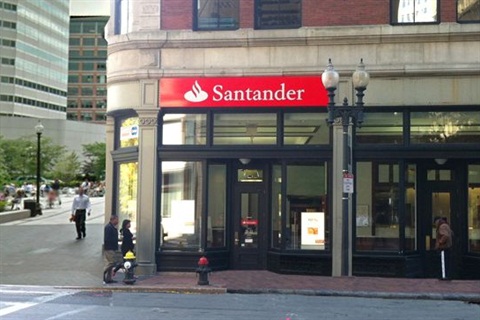
14 Jan Supreme Court to Decide If Debt-Buying Companies Are Debt Collectors
The U.S. Supreme Court on Friday granted a petition for writ of certiorari to review a lower court’s decision to dismiss a consumer class action lawsuit against Santander Consumer USA Holdings Inc (SC.N), over allegations it violated the Fair Debt Collection Practices Act (“FDCPA”). The Supreme court in Ricky Henson et al v. Santander Consumer USA, Inc et al, No. 16-349, January 13, 2017 — S.Ct. —-2017 WL 125669 (Mem) will decide whether companies that buy debt for pennies on the dollar can be held liable for debt collection activities.
The Supreme Court’s ruling could have a major impact on this fast-growing segment of a multibillion-dollar debt collection industry. The U.S. Congress enacted the debt collection law in 1977 to prohibit collectors from using abusive, unfair or deceptive practices to recoup money. The current case hinges on the definition of “creditor” and “debt collector” and whether a company that buys debt should be treated as a creditor and therefore not subject to the law.
Underlying Case
District Court Grants Motion to Dismiss
In Henson v. Santander Consumer USA, Inc., No. CIV.A. RDB-12-3519, 2014 WL 1806915 (D. Md. May 6, 2014), four Maryland residents who defaulted on car loans filed a proposed federal class action lawsuit against Santander Consumer USA Holdings Inc (SC.N) in 2012, alleging violations of debt collection laws, such as misrepresenting debt loads and bypassing debtors’ lawyers. Specifically, the debtors alleged that after acquiring the delinquent accounts from another lender, Santander began efforts to collect debts, and in doing so misrepresented (1) the amount of debt owed, and (2) its authority to collect such debt. Id. at *1. The debts had been sold by CitiFinancial Auto to Santander, a Dallas-based vehicle-financing and lending company owned in part by a subsidiary of Banco Santander (SAN.MC), the euro zone’s second-largest bank by market value.
The federal district court dismissed the suit, finding the FDCPA does not apply to creditors collecting debts in their own names and whose primary business is not debt collection. Henson, 2014 WL 1806915, at *3 (D. Md. May 6, 2014).
The Fourth Circuit Court of Appeals Affirms
The debtors appealed to the 4th Circuit, and the Court of Appeals affirmed the district court’s ruling. It found that, “[w]hile the FDCPA is a somewhat complex and technical regulation of debt collector practices, we conclude that it generally does not regulate creditors when they collect debt on their own account and that, on the facts alleged by the plaintiffs, Santander became a creditor when it purchased the loans before engaging in the challenged practices.” Henson v. Santander Consumer USA, Inc., 817 F.3d 131, 134 (4th Cir. 2016), cert. granted, (U.S. Jan. 13, 2017).
Petition for Writ of Certiorari
The debtors petitioned to the Supreme Court, stating that the 4th Circuit’s reasoning would “hamper both government and private efforts to combat abusive debt-collection practices.” The petition also noted appeals courts nationwide are divided on the issue, referring to debt buyers as creditors and debt collectors interchangeably. Santander countered, telling the high court that the 4th Circuit correctly interpreted the law, and that full-service consumer banks are less likely to commit abuses than debt collection companies because of their standing in the community.
The Supreme Court appeal comes at a time when the Consumer Financial Protection Bureau is considering proposals to toughen regulation of the debt collection industry.


Marie brown
Posted at 20:05h, 03 JulyI purchase a ES 350 Lexus in 2013 I had a Cadillac truck that was sold to me that should never have been sold then they sold me the ES 350 Lexus from CarMax of Laurel both vehicles are lemons and Vince loaned UndertSantana consumer the car was $18,000 I still owe $16,000 on the car the more I pay the more the car note seems to be the price never go Styles like money is going just to the entrance for the last 3 years I’m still owing 16,000 on a car when I should have have had it paid off but the money is going to interest in their charging you $10 a day for late fee
victoria
Posted at 19:50h, 08 JulyHi Marie, this sounds like a legal problem, please call Edwards Law on Monday if you’s like to discuss further, I would be happy to help.